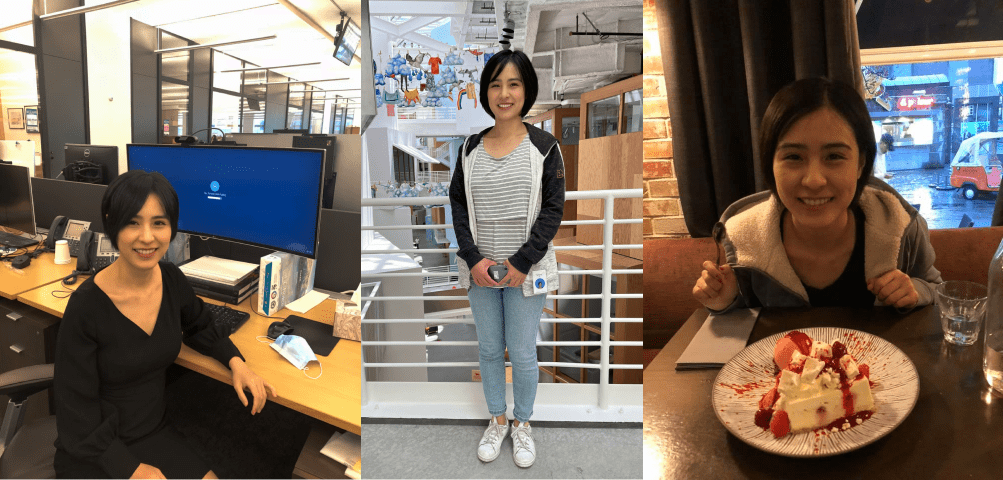From Quant Research at Goldman Sachs to Machine Learning at Meta — and Then to Startup Founder
Alex Sukhanov: Simone, let’s start with your time at Goldman Sachs. What did you work on there?
Simone Qu: I was a strategist — in finance, that’s essentially a quantitative researcher. I worked in the Fundamental Equity group, supporting portfolio managers in portfolio construction. The analysts would form views on individual companies, and my job was to translate those views into an optimal portfolio of positions.
We managed institutional portfolios — mostly for large organizations like insurance companies, pension funds, and retirement plans. The portfolios were sizable. For example, one global emerging markets fund I worked on was over $1 billion. Some clients invested through mutual funds with multiple holders; others had separately managed accounts with customized strategies.
Alex: What did you find most challenging in that role?
Simone: In finance, there’s a constant drive to beat the market. That means outperforming a benchmark like the S&P 500, not just benefiting from general market growth. It’s an extremely competitive game — every gain you make is essentially at someone else’s expense. You’re not just competing against “the market” but against other highly skilled teams with access to the same data, research, and tools.
The challenge is twofold: you have to stay close enough to your benchmark so you don’t drift into a different mandate, while also taking enough differentiated positions to generate excess returns. We used risk-adjusted measures like the information ratio to judge whether outperformance came from skill, not just from taking on more risk. It’s a hard problem — and the competition is relentless.
Alex: After Goldman, you moved to Meta. Why the switch?
Simone: I felt finance was slow to adopt new technology. My PhD in Statistics involved a lot of machine learning, but in finance I mostly used decades-old methods like linear regression. I wanted to work on cutting-edge ML problems, so I reached out to friends in tech, refreshed my skills through side projects, and eventually joined Meta in 2021.
Alex: What was your role at Meta?
Simone: I was a Machine Learning Engineer on the video recommendation team — initially for long-form video, but soon after, for Facebook Reels when short-form video became a focus. My work centered on interest exploration: identifying user interests beyond what they already watch.
For example, if the system knows you love cat videos, it will keep showing them — but to avoid an echo chamber, we’d occasionally recommend unrelated topics like gaming or dancing. This exploration sometimes hurt short-term metrics like view time but helped long-term engagement. We experimented with reinforcement learning and multi-armed bandits, and published a paper on our approach at WWW ’23.
Alex: What tools did you use?
Simone: Meta has large in-house ML frameworks built on top of PyTorch. Teams share massive pre-trained models and fine-tune them for specific needs, adding custom layers or ranking adjustments to insert exploration content without disrupting core recommendations.
Alex: Then you made another big leap — to founding your own company. What drove that decision?
Simone: I always wanted to start a company. I thought I’d work in big tech for a while, then join a startup, and then found my own. But through a co-founder matching program, I met Alex and decided to skip the intermediate steps. It was bold, but I’m glad I did it.
Alex: What’s been the biggest difference between big tech and running a startup?
Simone: In big tech, you focus on your function — engineering, research, product. Revenue and user growth are someone else’s problem. As a founder, every day starts with: How do we get more users? How do we generate revenue? You face uncertainty constantly, and often without a salary for long stretches. We went 18 months without pay, which was a shock at first.
Alex: Would you recommend others jump straight from big tech to a startup?
Simone: It depends. You need to be mentally, financially, and emotionally prepared for ambiguity, long hours, and minimal pay. Understand that you’ll be wearing multiple hats — product manager, marketer, salesperson — not just doing the technical work you’re used to.
Alex: You’re also a mom to two young kids. How have you balanced that with being a founder?
Simone: It’s chaotic at times, but I’ve had incredible help from my husband, parents, and in-laws. I didn’t want to choose between family and career; I wanted both. I focus my limited time on being present with my kids and also fully engaged in my work.
Alex: Any advice for parents thinking about starting a company?
Simone: Get help wherever you can. Be realistic about your time and energy, and focus on what matters most to you and your kids.
Alex: Final thoughts?
Simone: If you truly want to start a company — do it. Don’t overthink the “perfect” timing. You’ll never know everything you need; you’ll figure it out along the way.




Congratulations to both Simone & Alex for jumping off the "tried & true" path to follow your dreams. I suspect you both came to realize that the assumed "safety" of big-tech (and finance) corporate life is typically fleeting - and often the riskier approach in life. Reach out if I can help add value to your path!
Brian
Fun interview! How did you prepare for your interviews at META at the time?